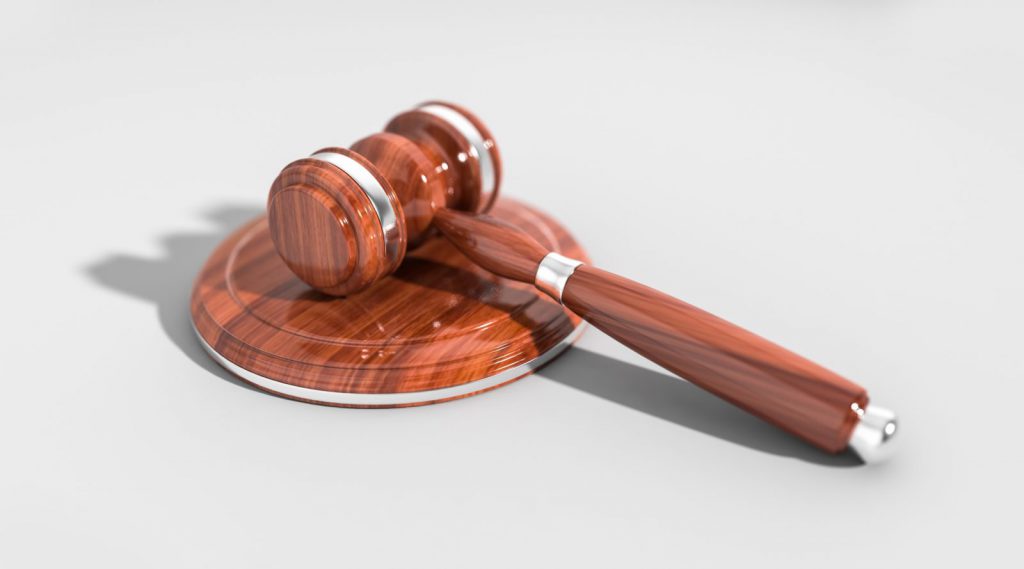
Published May 13, 2018
Editor’s Note: NRO contributor George Weigel delivered the following commencement address at Ave Maria School of Law in Naples, Fla., on May 12.
Today is a day for celebration. It’s also a day for reflection, as one moment in our graduates’ lives ends and a new chapter begins. So permit me to reflect briefly with you on the meaning of law, on law and the renewal of American democracy, and on the practice of law as a vocation.
Last month, our nation marked the fiftieth anniversary of the death of the Reverend Dr. Martin Luther King Jr. Like other martyrs over the centuries, Dr. King was not a perfect man; but he died a martyr in the cause of justice and reconciliation, and in defense of the noble ideas that are the moral bedrock of our country. Dr. King is best remembered today for his stirring speech at the Lincoln Memorial on August 28, 1963. There, he bore witness to his “dream” that, one day, his children would be judged by the content of their character and not by the color of their skin. That speech, like Lincoln’s Second Inaugural Address — another stirring, biblically inspired oration delivered by another imperfect man who was a martyr for the causes of justice and reconciliation — is now part of America’s cultural patrimony. Yet Dr. King made an equally important contribution to our national heritage in a letter he wrote to fellow clergyman from a jail cell in Birmingham, Ala., four months before he spoke at the Lincoln Memorial.
Dr. King and his colleagues in the Southern Christian Leadership Conference had been criticized by some local Alabama clergy for the program of non-violent demonstrations they were leading, protesting segregation statutes in Birmingham — at that time, quite probably the most segregated city in the United States. His critics were particularly concerned about the willingness of civil-rights demonstrators to break local laws intended to enforce segregation and to muffle or prevent protests against it. King’s response — the response of a Baptist minister — was thoroughly Catholic and bears repeating today:
One may well ask, “How can you advocate breaking some laws and obeying others?” The answer lies in the fact that there are two types of laws: just and unjust. I would be the first to advocate obeying just laws. One has not only a legal but a moral responsibility to obey just laws. Conversely, one has a moral responsibility to disobey unjust laws. I would agree with St. Augustine that “an unjust law is no law at all.”
Now, what is the difference between the two? How does one determine whether a law is just or unjust? A just law is a man-made code that squares with the moral law or law of God. An unjust law is a code that is out of harmony with the moral law. To put it in the terms of St. Thomas Aquinas: An unjust law is a human law that is not rooted in eternal law and natural law.
Eighty years before Dr. King wrote his Letter from Birmingham Jail, Pope Leo XIII made precisely the same argument in several encyclicals with which he laid the intellectual foundations of modern Catholic social doctrine. Pope Leo, like Dr. King, took his concept of law from Thomas Aquinas. In doing so, he challenged the legal positivism of his day — and ours — according to which “law” is simply whatever the law says it is, period. Leo XIII and Dr. King, drawing on the insights of St. Thomas, understood that this legal positivism empties law of moral content, detaches it from reason, and treats law as merely an expression of human willfulness.
Leo XIII offered the world a nobler concept of law. A true law, he proposed, has three characteristics: A true law is a rule mandated by reason; a true law is enacted by a properly constituted authority; and a true law serves the common good of society. The modern political tradition that begins with Thomas Hobbes thinks of law as sheer coercion. Leo XIII, with Thomas Aquinas, disagreed. To their minds, true law is authoritative prescription, grounded in reason. True law reflects moral judgment, and its power comes from its moral persuasiveness. Law, rightly understood, appeals to conscience — to that often-fragile but nonetheless real human instinct for the good and the true — not just to fear.
What does this have to do with our American situation today? Everything.
In the 21st-century United States, the law is too often understood as a codification of willfulness rather than a precept of reason, as freedom is too often understood to be a matter of unbridled choice — or as the famous moral philosopher Frank Sinatra would put it, freedom is “I did it my way.” This false concept of freedom and the false concept of law that goes with it are at the root of our Supreme Court’s mistaken decisions on abortion and marriage in Roe v. Wade, Planned Parenthood v. Casey, United States v. Windsor, and Obergefell v. Hodges. And beneath those false ideas of freedom and law lies another error that is putting our democracy in jeopardy: the idea that there is only your truth and my truth, but nothing properly describable as the truth. What happens, though, if “your truth” and “my truth” collide and there is no standard of judgment — call it “the truth” — by which we can settle our differences? What happens is that you impose your power on me, or I impose my power on you — sometimes through cultural bullying and shaming, but more often these days through the distortion of the law.
That imposition — that power play — is what Cardinal Joseph Ratzinger called, in April 2005, the “dictatorship of relativism.” It is alive and well throughout the Western world today, eating away at the moral and cultural foundations of democracy. It is one cause of the current turmoil in the European Union. It is eroding religious freedom and freedom of conscience in Canada. And it is a primary cause of the turbulence in 21st-century American public life.
If we’re disturbed, as we should be, by the condition of American politics today, we should look beneath the headlines, the sound bites, and the Twitter feeds and ponder the state of our public moral culture. We are where we are not by accident but because the ideas of freedom and law that shape our public life have become severely distorted. The moral and cultural foundations of our republic need not just shoring up but deep and fundamental renewal. That is a task for generations, but it must begin now — and that task must engage each of you, the class of 2018 of Ave Maria School of Law.
You will engage that task in different ways. Some of you will do it through honorable legal practice. Some of you will do it in academic life. Some of you will do it through public service, in elective or appointive office. Perhaps some of you will do it as judges. But whatever your station in legal life, you will help give America a new birth of freedom rightly understood if you remember the noble idea of law that animated Saint Thomas Aquinas, Pope Leo XIII, and Dr. Martin Luther King Jr.; if, as citizens and legislators, you help reconnect our laws to the moral law, and if, in all walks of legal life, you think of your legal work as a vocation, not simply a career.
The men and women who bend the curve of history in a more humane direction live vocationally. That’s true of the great figures I’ve mentioned here. These towering human personalities understood, each in his own way, that every human being has a God-given vocation: a unique place, and a singular responsibility, in the divine plan of history. Discerning that vocation can take time and may involve false starts. Living that vocation can be costly. But living vocationally — constantly asking yourself, “Am I doing what I ought to be doing now?” — is the most exhilarating way to spend out one’s life. It’s also the most spiritually enriching. Living vocationally may, on occasion, cost you a sleepless night. But living vocationally guarantees that you will never have a boring day.
In the Gospels of Matthew and Luke, Jesus rebukes Satan with the reminder that “man does not live by bread alone” (Matthew 4:4, Luke 4:4). Nor is a noble and spiritually rich life lived by fame alone, or wealth alone, or power alone, or pleasure alone — and certainly not by billable hours alone. Each of you graduates has before you not just a legal career but a legal vocation. If, in your practice of law, you help remind the American legal profession that black-letter law and the moral law must be in active, ongoing conversation with each other, so that the laws that govern us reflect the moral truths written into the human heart and into the human condition, you will be living vocationally. You will be helping rebuild the foundations of American democracy. And you will be vindicating the kind of legal education you received at Ave Maria School of Law.
Congratulations on your graduation. Best wishes for your work. And Godspeed on your journey.
— George Weigel is the distinguished senior fellow of Washington’s Ethics and Public Policy Center.









